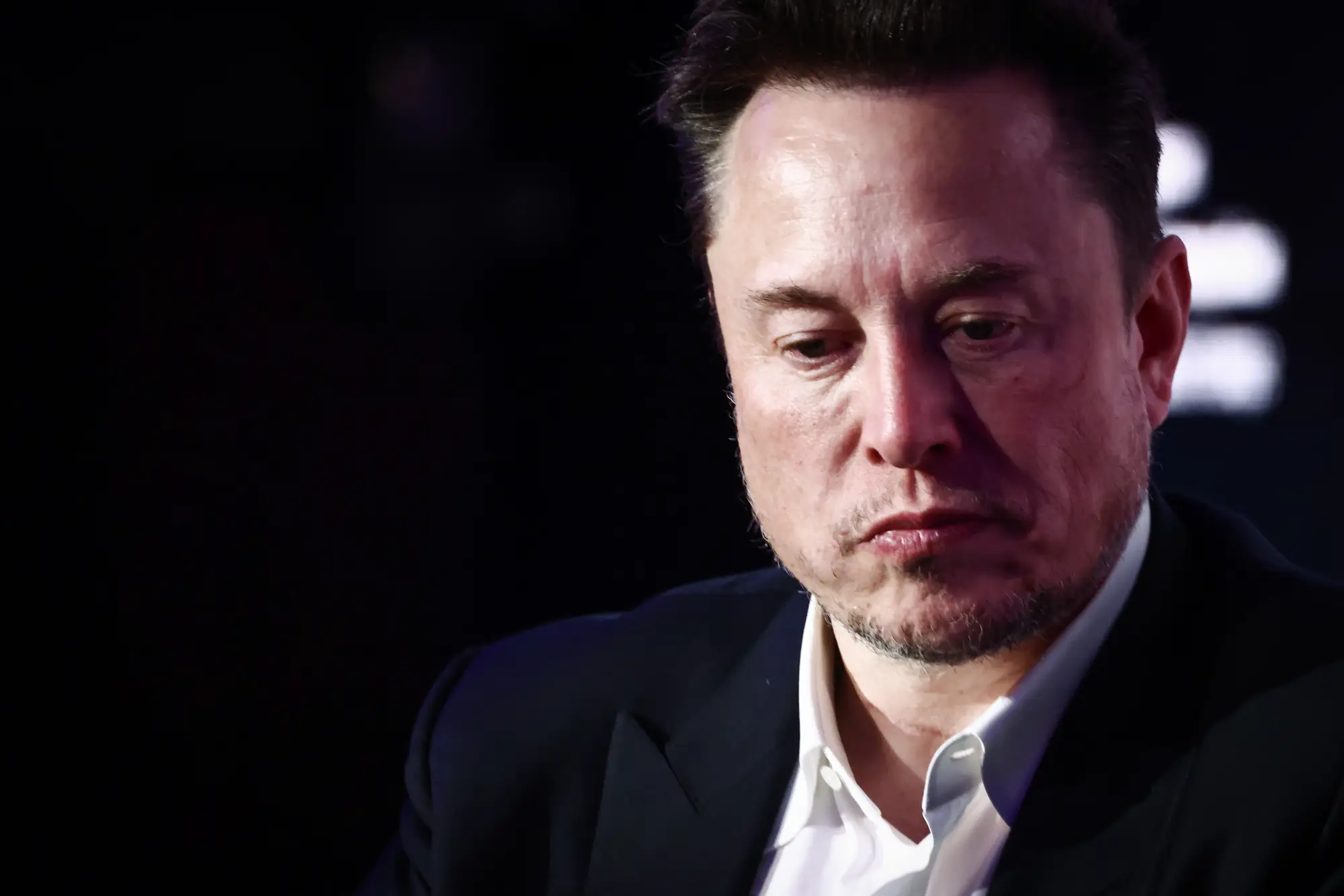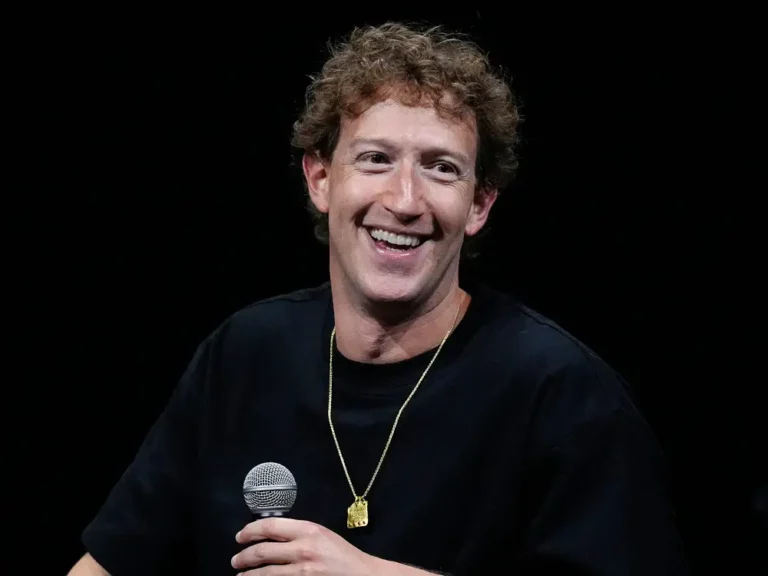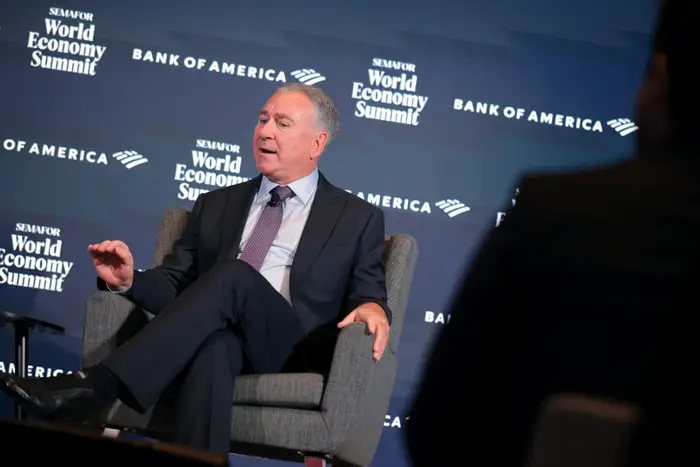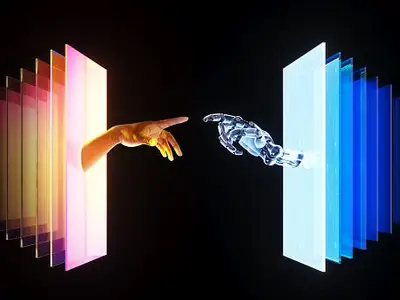Elon Musk is probably getting a little nervous

Elon Musk sounded nervous during Tesla’s earnings call Tuesday.
Tesla on Tuesday had a lackluster earnings report that revealed the electric-vehicle maker once again missed investor expectations.
And Elon Musk is probably a little nervous.
Though the automaker had slightly better-than-expected revenue, the second-quarter earnings showed Tesla’s adjusted earnings margin dropped from 18.7% to 14.4% year over year, its free cash flow was short of analyst expectations by more than half a billion dollars, and its earnings per share fell from $0.91 a year ago to $0.52.
The billionaire Tesla CEO fielded several terse questions from investors and analysts on topics including the company’s slipping revenue from auto sales, continued delays to its Robotaxi project, and whether the company’s strategy would continue with limited-release models rather than investment in large-scale production of a lower-cost model.
“We’re going to make great products in the future, just like we have in the past, end of story,” Musk replied.
Among the tensest exchanges was when an analyst pressed Musk about reports that his artificial-intelligence startup, xAI, had hired engineers away from Tesla and that Musk had diverted graphics processing units destined for Tesla to xAI.
“How do you make allocation decisions among these various ventures, and how do you make Tesla owners comfortable that you’re doing it in a way that really benefits them?” the analyst asked.
Musk seemed to bristle before responding that news of the diversion of the GPUs was an “old article” and that Tesla had rerouted the systems because it had no place to store them — but his fledgling company xAI did.
“I want to be clear that was in Tesla’s interest, not contrary to Tesla’s interest,” Musk said.
Rather than reassuring investors that the company is in a strong position to rebound, Musk’s comments during the call appear to have done the opposite. By the time he signed off, Tesla shares had fallen more than 7% in after-hours trading.
Some analysts remain bullish on Tesla, including Gene Munster, a managing partner at Deepwater Asset Management who told CNBC he believed Tesla was “firmly on track” to become a company with a $3 trillion market cap in the coming years.
But Musk has reason to be concerned about the EV company’s performance.
Tesla faces decreased buyer enthusiasm and, despite offering discounts that ate into the company’s profitability, weakening demand. Though Musk has promised the development of innovations like the Robotaxi and lower-cost models for widespread adoption, those visions haven’t come to fruition.
In its second-quarter earnings, Tesla reported a 7% decrease in year-over-year automotive revenue, which contributed to the company’s diminished profits.
That’s not to mention increasing competition around the globe — such as China’s rapid expansion in the sector — which Musk acknowledged on the call was of notable concern for the company.
“There are quite a few competing electric vehicles that have entered the market,” Musk said. “Mostly, they have not done well, but they have discounted their EVs very substantially, which has made it a bit more difficult for Tesla.”
The complications are compounded by the company’s heavy investment in artificial intelligence, which CNBC reported had increased expenditures by 10% from a year ago to $2.27 billion, further shrinking the company’s margins.
It was the second quarter in a row in which the company’s profit had sunk, with the worst margins Tesla has seen in five years, Reuters reported. The disappointing results come shortly after shareholders reapproved Musk’s massive 10-year $46.8 billion pay package.
Dan Coatsworth, an investment analyst at AJ Bell, told Reuters that Tesla had now missed its earnings targets for four quarters in a row, which discouraged some investors despite Musk’s continued optimistic promises for the company.
“There is a lot of talk about robotaxis, humanoid robots, and autonomous driving, which provides an exciting narrative for investors but doesn’t get over the fact that these are tomorrow’s potential riches, not today’s,” Coatsworth said.
Representatives for Tesla did not immediately respond to a request for comment from B-17.






